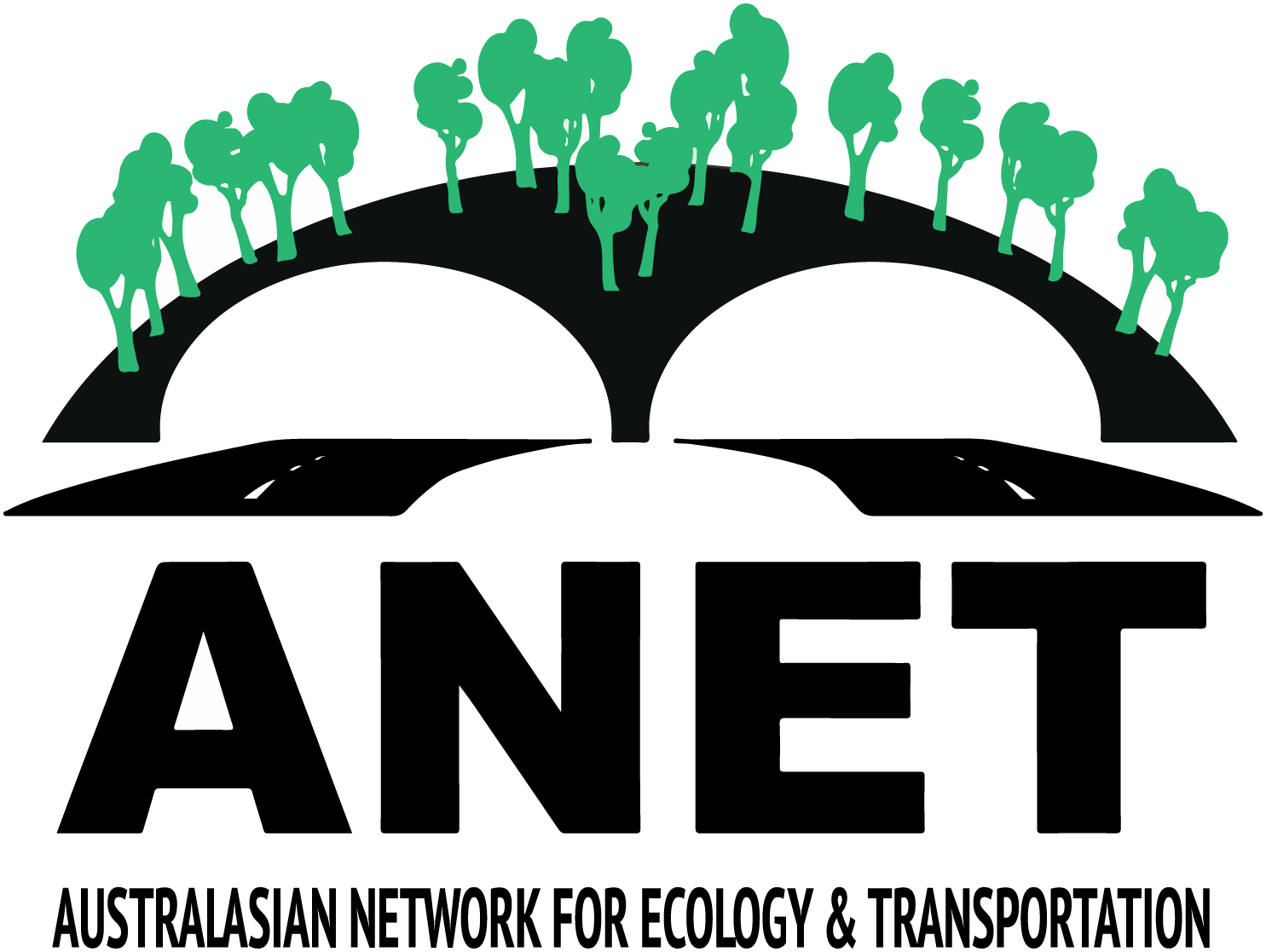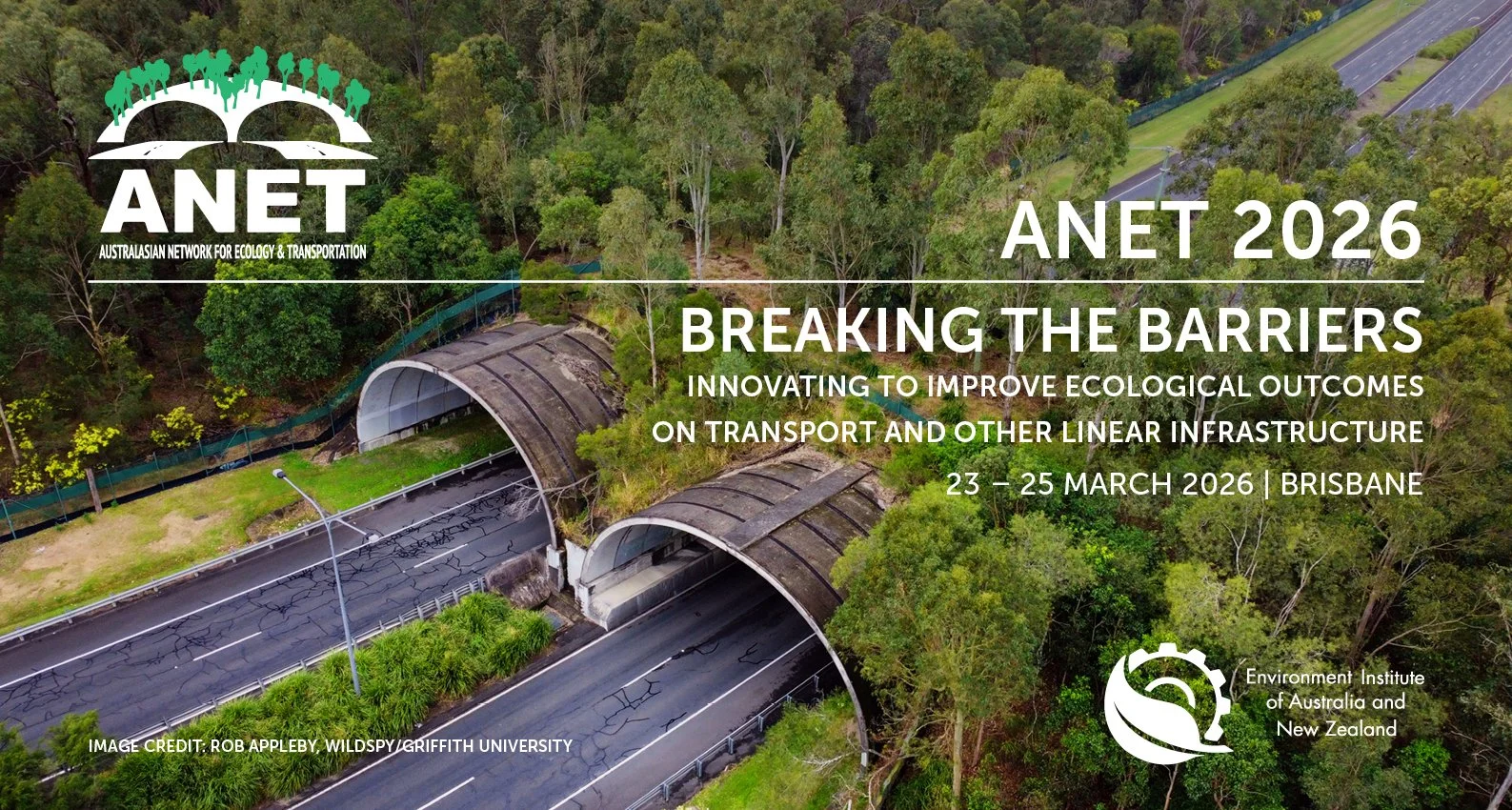Linear infrastructure can have a devastating effect on wildlife and the natural environment, yet information on ways of limiting its impact is not always readily available. ANET aims to improve the flow of high-quality information in the field of transport ecology among stakeholders including planners, engineers, regulators, researchers, and community groups.
ANET was established in 2009 and became a Community of Practice (CoP) within the Environment Institute of Australia and New Zealand’s (EIANZ’s) Ecology Special Interest Section in November 2023.




